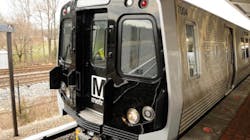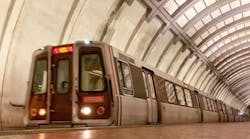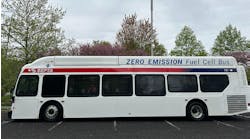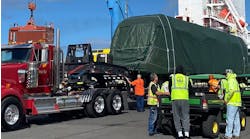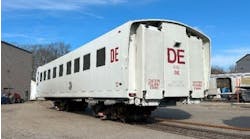Washington Metropolitan Area Transportation Authority (WMATA) says it will continue to operate reduced Metrorail service through Dec. 31, 2021, as the authority continues to grapple with a significant reduction in available rail cars.
WMATA pulled its 7000-series cars from service following an Oct. 12 derailment after a railcar involved in the derailment was found to have a wheel and axle assembly out of compliance with specifications. The 7000-series represents roughly 60 percent of WMATA’s rail fleet. The authority is working with the Washington Metrorail Safety Commission to develop a review process to return the 7000-series cars to service. However, WMATA does not have a timeline established to return these cars to service.
WMATA says nearly 75 percent of Metrorail stations have trains arriving at least every 10-12 minutes, as many stations are served by multiple lines. More frequent service depends upon available railcars meeting safety standards.
Adding complexity to the issue is the supply chain challenges impacting parts required to return the authority’s 6000-series railcars. The authority says incremental service improvements will be made as parts arrive.
“As we get more parts, we will return more of the 6000-series railcars to service for our customers during December,” said WMATA General Manager and CEO Paul J. Wiedefeld. “While we know service is not as frequent as customers would prefer, we will add each train as it becomes available to help incrementally improve service reliability and frequency.”
WMATA completed inspection of the wheel assemblies in all 748 7000-series railcars on Oct. 28 and began testing two eight-car 7000-series trains on its system on Nov. 8. The authority says testing will be ongoing this month to confirm new inspection intervals are sufficient to return the trains to passenger service.
The 7000-series railcars that are currently in storage will require preparation before they are returned to service and once in service, will undergo more frequent inspections. WMATA says “engineers, safety and operations teams are preparing return to service and mobilization plans to reposition” the railcars.
Wiedefeld has previously noted that safety has served as the primary driver in returning the railcars to service rather than deadlines.
“This is a monumental undertaking that is being performed on parallel tracks to ensure that we have as little down time as possible between testing and remobilizing the fleet,” Wiedefeld said. “We are intentionally not setting deadlines so that safety and good data drive our decisions, but we are mindful that customers want the best service we can provide as soon as we can deliver it, and we are committed to building back up in phases.”
Looking to 2022, WMATA says the rail service outlook will depend upon the successful completion of the 7000-series test plan and restoration plan – both of which require acceptance from Washington Metrorail Safety Commission – and the operational plan to remobilize the fleet for passenger service. WMATA expects to update its service plans before the end of the calendar year.
